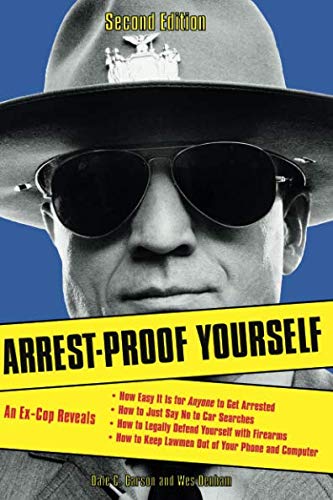Once upon a time, car accident liability was, if not simple, then fairly straightforward.
Two or more drivers were involved in an accident because someone was negligent, fault was determined, insurance claims were settled and everyone went along on their merry way.
But the roads simply aren’t what they used to be. Thanks to new technology and crowd-sourced mobile applications, the accident liability can of worms has gotten a whole lot wormier.
Ridesharing
 Beat Your Ticket: Go t...
Best Price: $9.00
Buy New $36.92
(as of 02:55 UTC - Details)
Beat Your Ticket: Go t...
Best Price: $9.00
Buy New $36.92
(as of 02:55 UTC - Details)
Ridesharing companies like Uber and Lyft have been a godsend to many—they give riders a cheaper and more convenient alternative to taxi cabs and offer drivers an easy way to make extra money. But that doesn’t mean that ride sharing hasn’t presented a host of complex legal issues. Although much of the debate centers on competition with taxis, there is also a significant concern about accident liability.
All official taxi drivers are required to be insured as commercial drivers, but rideshare drivers aren’t told that they need commercial insurance. Companies like Uber and Lyft insure drivers when they have a paying passenger in the car, but things get a bit murkier when it comes to the time that drivers are cruising around waiting for a fare.
They say your personal insurance policy covers you during this time, but the reality is that many private insurance companies will refuse to pay out if an accident occurs while you’re on duty as a transportation provider, and some
 Battlefield America: T...
Best Price: $10.95
Buy New $18.80
(as of 10:15 UTC - Details)
will drop you immediately if they find out you’re using your vehicle for ridesharing. The good news is that some savvy insurance providers are beginning to offer special coverage for drivers who use their car for ridesharing.
Battlefield America: T...
Best Price: $10.95
Buy New $18.80
(as of 10:15 UTC - Details)
will drop you immediately if they find out you’re using your vehicle for ridesharing. The good news is that some savvy insurance providers are beginning to offer special coverage for drivers who use their car for ridesharing.
Car Sharing
The concept of car sharing is perfect for people who need a car once in a while, but don’t want to deal with the hassles of owning one. ZipCar, for example, is like a rental car agency that allows you to use a car from its fleet for a few hours whenever you want. RelayRides, on the other hand, uses a peer-to-peer platform that lets individual car owners rent out their car temporarily to strangers.
Both types of companies offer insurance coverage, but usually it’s the absolute state minimum, which would not go very far in a serious accident. Furthermore, only a few states have revised their insurance laws to accommodate these new services, so in the case of an accident or injury, all the parties involved could end up in a complex legal battle to determine liability.
 Arrest-Proof Yourself
Best Price: $8.49
Buy New $10.53
(as of 05:55 UTC - Details)
If you’re sharing your own car, it’s important to realize that any policy you have may be voided if another driver has an accident in your car. Before you jump into anything, call your provider to find out.
Arrest-Proof Yourself
Best Price: $8.49
Buy New $10.53
(as of 05:55 UTC - Details)
If you’re sharing your own car, it’s important to realize that any policy you have may be voided if another driver has an accident in your car. Before you jump into anything, call your provider to find out.
Crash Prevention & Driverless Cars
One of the biggest developments in automobile technology in recent years has to be crash prevention technology. Cars are now being made that brake automatically if you get too close to the car in front of you, tell you when there’s a car in your blind spot and even controls the wheel if you’re veering into another lane. A car that can help you avoid an accident sounds appealing to many, but what happens if this technology fails? Or if it prevents one accident but causes another?
Similar questions arise when you consider the emerging driverless car technology. Companies like Google are in advanced stages of developing and testing cars that can drive themselves. The potential benefits of such cars are many, including safer roads with fewer human driving errors and the possibility for anyone to travel independently. But the fact is that these cars, no matter how safe they are, will be involved in accidents. And when one of them hits a person or another car, who will be to blame?
 10 Rules for Dealing w...
Best Price: $8.42
Buy New $18.00
(as of 10:53 UTC - Details)
10 Rules for Dealing w...
Best Price: $8.42
Buy New $18.00
(as of 10:53 UTC - Details)
The U.S. Department of Transportation has said that many issues will simply be resolved by extending product liability law. If a driverless car or a car with crash prevention technology malfunctions in some way, then the liable party would obviously be the car manufacturer and not the owner or driver of the vehicle.
For traffic or parking tickets though, the driver would still likely be responsible for paying up. And determining fault in accidents that involve self-driving cars may actually be more straightforward due to the fact that they’d come equipped with “black boxes” that are constantly recording and storing data.
Throughout history, technology and innovation have always moved faster than the law. This is truer today than ever before as technological growth is exponential.
As the very definition of driving and car ownership changes, it will be critical for lawmakers to keep up in order to ensure the physical safety and legal protection of everyone on the road.
Reprinted from National Motorists Association.





